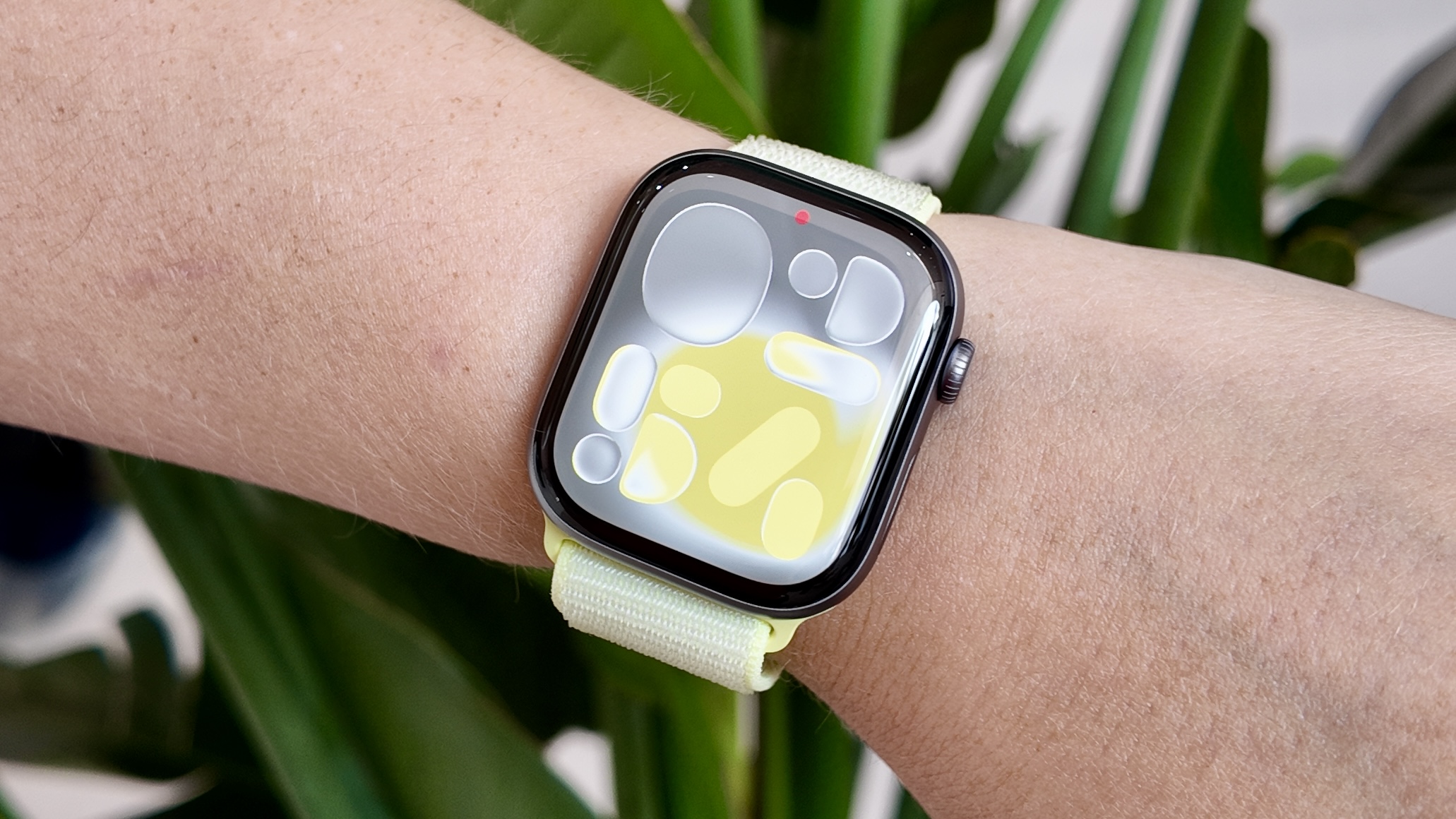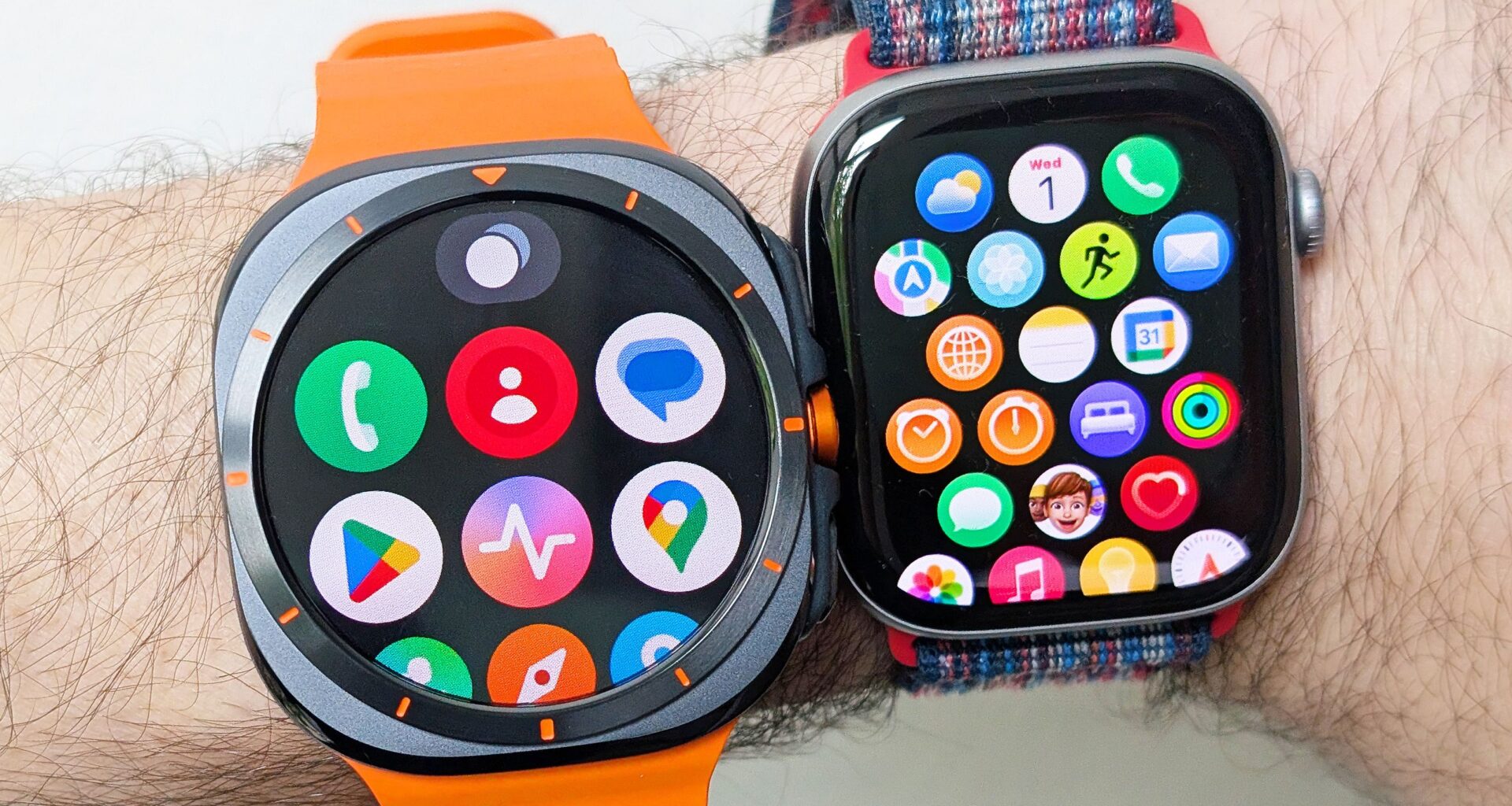Which powerhouse, full-featured smartwatch is better for tracking fitness: the Apple Watch Series 11 or the Samsung Galaxy Watch Ultra? Though it’s unlikely you’ll be choosing between the two — the former is the best smartwatch for iPhone owners and the latter is the best rugged Android smartwatch — it’s still a very intriguing question that could give us a sense of which tech giant is delivering the goods with wearables.
To find out, I wore the Apple Watch Series 11 on my left wrist and the Samsung Galaxy Watch Ultra on my right wrist before heading out on a 5,000-step walk amongst changing leaves and dappled sunlight (Don’t let folks tell you otherwise: The U.S. Pacific Northwest in the fall is tough to beat).
Read on to find out which smartwatch wins this showdown of fitness tracking precision — the Apple Watch 11 or Samsung Galaxy Watch Ultra.
You may like
Apple Watch 11 vs Samsung Galaxy Watch Ultra: Quick comparison
But first, how do these two high-end smartwatches compare? The Apple Watch Series 11 starts at $399 and is available in 42mm or 46mm sizes. The Samsung Galaxy Watch Ultra, meanwhile, costs $649 and only comes in a rather chunky (compared to the Series 11) 47mm case size.
Not only is the Galaxy Watch Ultra a substantially beefier and heavier device than even the larger Series 11 model, it’s also tougher built, with 100 meters of water resistance compared to just 50 meters for the Apple Watch. In this way (and others), the Galaxy Watch Ultra is more similar to the Apple Watch Ultra 3.
Both devices pair bright and responsive touchscreens with physical buttons. The Ultra offers more control points along the case than the Series 11, though, along with a brighter screen that maxes out at 3,000 nits versus 2,000 nits for the Apple Watch.
Battery life for the Series 11 is rated at 24 hours per charge, though it exceeded that rating in my testing. Meanwhile, the Galaxy Watch Ultra is easily good for 48 hours per charge — again, more in line with the Apple Watch Ultra Series.
Both models sport cutting-edge holistic and workout tracking tech, but which is the more accurate device when it comes to logging a basic outdoor workout? Each has an onboard GPS for location and speed data, but the Galaxy Watch Ultra sports a more powerful multi-band antenna compared to a single-band antenna on the Series 11.
That aside, these two are pretty evenly matched. They each also have onboard altimeters for precise elevation tracking, gyroscopes, and accelerometers for monitoring body movement, and high-tech heart rate sensors for cardio data.
That said, before starting the test, I favored the Samsung Galaxy Watch Ultra to win because of its fancier GPS. Also, given the Ultra’s pedigree as a smartwatch for outdoor adventurers, you’d expect it to excel at monitoring a basic urban hike. Read on to find out if my hunch proved true.
You may like
Apple Watch 11 vs Samsung Galaxy Watch Ultra: Walk test results
The primary metric I look at for these comparisons is each device’s step count total. As a control, I manually count my steps during the walk, using an old-school tally counter to note every hundred taken.
As a control for distance, pace, and elevation data, I turned to trusty Strava. Find the results of my Apple Watch Series 11 vs. Samsung Galaxy Watch Ultra 5,000-step walk test below.
Swipe to scroll horizontallyApple Watch 11 vs Samsung Galaxy Watch Ultra: resultsHeader Cell – Column 0
Apple Watch 11
Samsung Galaxy Watch Ultra
Control
Step count
4,974 steps
5,048 steps
5,000 steps (manual count)
Distance
2.71 miles
2.70 miles
2.81 miles (Strava)
Elevation gain
296 feet
251 feet
244 feet (Strava)
Average moving pace
17 mins 36 secs per mile
17 mins 13 secs per mile
16 mins 22 secs per mile (Strava)
Average heart rate
118 bpm
122 bpm
n/a
Max heart rate
149 bpm
145 bpm
n/a
Total calories burned
357 calories
320 calories
n/a
Device battery usage
4%
7%
n/a
Both the Apple Watch Series 11 and the Samsung Galaxy Watch Ultra calculated impressively accurate step count totals within 50 steps of my actual count. However, the Apple Watch 11 was a bit closer, undercounting by 26 steps, compared to the Ultra, which overcounted by 48. For what it’s worth, Strava had my step count tally at 5,060 steps.
The Apple Watch 11 and Galaxy Watch Ultra both calculated roughly the same total mileage, which is about one-tenth of a mile off from Strava’s measure. Ultimately, though, Apple is ever so slightly closer.
That changes when we look at elevation gain. While the Samsung Galaxy Watch measures a total climb within 7 feet of Strava’s metric, the Series 11 was far more generous with its data, seemingly adding an extra 52 feet of upward trekking to my total.
This isn’t the first time an Apple Watch has overcounted my elevation gain during a walk test. When I tested the Apple Watch 11 vs. Garmin Instinct 3, I got a similar result.

(Image credit: Dan Bracaglia/Tom’s Guide)
Apple and Samsung generated slower average pace data than Strava. This is likely because the watches are reporting my average elapsed pace rather than my moving pace. This means any pauses — like stopping to tie my shoe — slow down the average.
Strava reports both an elapsed and a moving pace metric (the latter is much more useful IMHO). While the figure in the table above is my average moving pace, Strava’s average elapsed pace of 16 minutes and 55 seconds per mile is much more in line with Apple’s and Samsung’s.
Samsung noted a slightly higher average heart rate of 122 bpm versus 118 bpm for the Apple Watch. However, Apple’s max heart rate is exactly 4 bpm faster than Samsung’s. Without a third heart rate tracker, we don’t know which is more correct. Fortunately, the discrepancy is minimal and not worth losing sleep over.
Both wearables calculated more than 300 calories burned during my 45-minute walk, with Apple offering slightly more props than Samsung in this department.
Much to my surprise, the Apple Watch 11 used less battery than the Samsung Galaxy Watch Ultra. This might be because multi-band GPS is generally more power-intensive than single-band.
Apple Watch 11 vs Samsung Galaxy Watch Ultra: And the winner is…

(Image credit: Future)
With a more precise step-count total and distance metric, the Apple Watch Series 11 beats the Samsung Galaxy Watch Ultra in this 5,000-step walk test head-to-head. That said, the Galaxy Watch Ultra was also incredibly accurate at counting my steps and distance, and even bested the Apple Watch at elevation gain accuracy.
Of course, I’m somewhat splitting hairs here (which is admittedly quite fun). The takeaway is that either the Apple Watch Series 11 or the Samsung Galaxy Watch Ultra is a good bet for your fitness tracking needs.
Which smartwatches, fitness trackers, or smart rings would you like to see me test head-to-head next time? Let me know in the comments below. Until then, get those steps in!
Follow Tom’s Guide on Google News to get our up-to-date news, how-tos, and reviews in your feeds. Make sure to click the Follow button.
Today’s best Apple Watch 11 and Samsung Galaxy Watch Ultra deals

